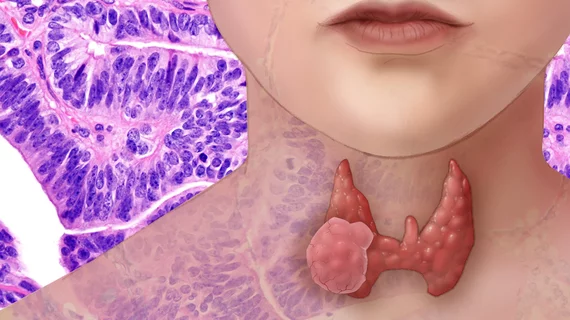Real-time sonography distinguishes between 2 thyroid conditions
A team of radiologists from South Korea found real-time sonography (US) accurate in diagnosing diffuse thyroid disease (DTD) from normal thyroid parenchyma, according to a four-center study published in the American Journal of Roentgenology.
Previous single-center studies have shown US capable of identifying DTD when paired with a thyroid classification system. But, lead author Hye Shin Ahn, with the Chung-Ang University College of Medicine in Seoul and colleagues claim their undertaking is the first multicenter study to assess the diagnostic capability of US.
A total of 214 patients underwent preoperative thyroid US, followed by thyroid surgery completed at one of four participating institutions between January and March 2017. An attending radiologist classified the US diagnosis as no DTD, indeterminate, suspicious for DTD or DTD.
After comparing these diagnoses to histopathologic results, the team found normal thyroid parenchyma and DTD had “statistically significant” difference in echogenicity, echotexture, size, glandular margin, vascularity and US classification. The team also determined US could accurately diagnose the two thyroid conditions.
“The results of the current study show that real-time US can be helpful for accurately diagnosing DTD despite the involvement of multiple radiologists with variable levels of experience with thyroid US examinations and that a US finding of two or more DTD features has good diagnostic accuracy,” authors wrote.
When assessing the difference in diagnosis between the four institutions, Ahn et al., found all radiologists achieved “good” diagnostic accuracy in identifying DTD from normal thyroid parenchyma.
Authors noted a wide range among the radiologists, but attributed the gap to a difference in experience ranging from five to 15 years between the imagers.

